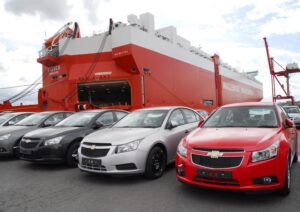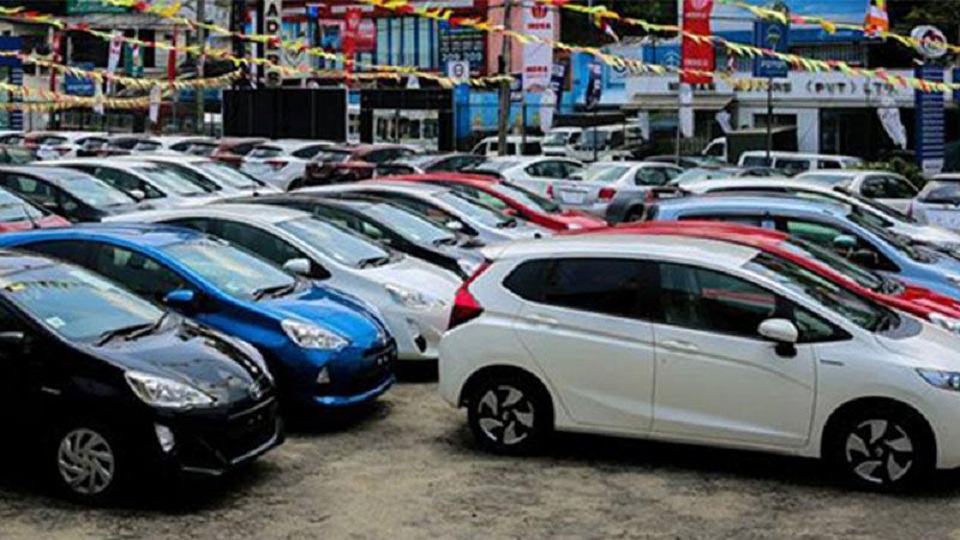Sri Lanka’s Secondhand Vehicle Market Sees Steep Price Hikes Amid Policy Changes
As of February 2025, Sri Lanka’s secondhand vehicle market is witnessing substantial price increases due to shifting government policies. Key factors driving these changes include the lifting of import bans, stringent age restrictions on imported vehicles, and a significant rise in import duties.
Impact of Import Restrictions and Duties

The Vehicle Importers’ Association of Sri Lanka (VIASL) has raised concerns over the government’s decision to limit vehicle imports to those not older than two years, replacing the previous allowance of five to seven years. This policy, combined with increased import charges, has resulted in sharp price surges for both new and used vehicles. For instance, the price of a Suzuki Wagon R, a popular choice among Sri Lankan buyers, is expected to surpass Rs. 10 million.
A major concern in the industry is the anticipated spike in vehicle import levies, which currently exceed 300%. The Sri Lanka Vehicle Importers’ Association has warned that these levies could rise to 400%, 500%, or even 600% for specific models.
This surge in vehicle prices is attributed to multiple layers of taxation, including:
Special Import Duty: Based on the vehicle’s value.
Luxury Tax: Applied to high-end vehicles exceeding a set price threshold.
Value Added Tax (VAT): Currently at 18%.
Excise Duty: Ranging between 200% and 300%.
These cumulative taxes drastically increase the final cost of both new and used vehicles, making affordable cars nearly unattainable for many consumers.
Rising Prices in the Second-hand Market
Due to these factors, demand for secondhand vehicles has surged, further inflating prices. Industry analysts predict that prices for top-selling used cars could rise by 20% to 30% in the short term. Many consumers, unable to afford new cars due to high taxes, are turning to the used vehicle market, exacerbating the price increase.
Breakdown of New Import Taxation System

From February 1, 2025, Sri Lanka’s customs import duty on motor vehicles stands at 30% of CIF (Cost, Insurance, and Freight) due to a 50% surcharge on the previous 20% duty rate. Additionally, several other taxes apply:
Luxury Tax: Levied on cars exceeding a specified price.
VAT: An 18% tax imposed alongside other fees.
Special Import Tax: Percentage-based, varying with vehicle type.
Excise Duty: Between 200% and 300%.
Industry leaders have cautioned that import tax rates on luxury vehicles could rise up to 600%, making high-end cars prohibitively expensive.
Concerns Over a ‘Tax on Tax’ System
Sri Lanka’s intricate vehicle taxation system has sparked renewed criticism from tax experts. One major issue is the double taxation of VAT, where the government imposes an 18% VAT on an already VAT-inclusive excise duty, effectively creating a 30% total VAT burden on vehicles. Critics argue that this system unfairly increases costs for buyers.
Before 2014, vehicle taxation in Sri Lanka included multiple levies such as import duty, VAT, excise duty, and the Port and Airport Development Levy (PAL). In an attempt to simplify the process, VAT on motor vehicles was removed in 2014. However, the tax reforms introduced in January 2024 reintroduced VAT, reversing earlier efforts to ease vehicle taxation.
Experts also warn that the government may reintroduce PAL as a replacement for the 10% ad-valorem surcharge tax, further increasing the total import costs.
Impact on Electric Vehicles and Calls for Reform
Electric vehicles (EVs) have been particularly affected by these new policies, with excise duty rates doubling under the revised taxation system. While some exemptions still exist, including those for PAL, Social Security Contribution Levy, National Building Tax, and Cess Duty, the overall taxation structure has significantly driven up EV prices.
The rising costs of both fuel-powered and electric vehicles have fueled demands for tax reforms. Industry experts and consumer advocacy groups are calling for a more transparent and equitable tax system to prevent excessive financial strain on buyers and restore affordability in Sri Lanka’s auto market.
With the vehicle tax burden likely to increase further, prospective buyers are advised to closely monitor market trends and carefully assess the long-term financial implications of purchasing a vehicle in Sri Lanka’s current economic climate.







